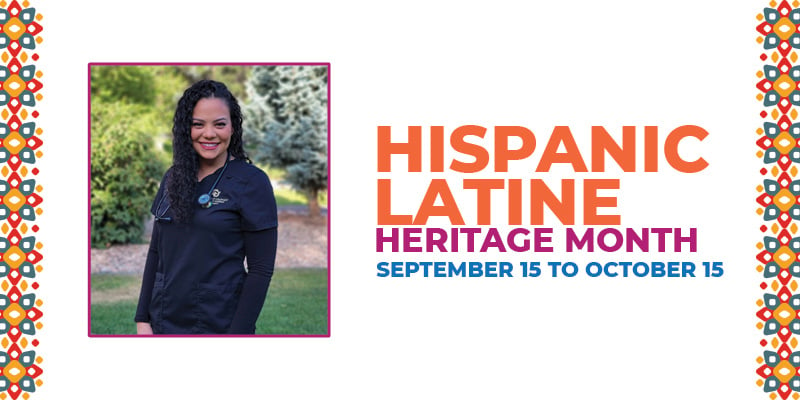Flor “Marie” Carrion, MPH&TM (Master's in Public Health and Tropical Medicine), spent years working in clinical research when she decided to become a nurse.
Carrion’s work, particularly in maternal-fetal medicine research, allowed her to engage with expectant mothers and their families, creating deep relationships while offering critical support during labor. Some of her patients were Spanish-speaking.
Carrion, who is Puerto Rican, grew up in Florida, and now lives in Denver, understood her patients’ challenges to receiving care.
“I developed a more profound respect for the unique challenges faced by Spanish-speaking patients and their families during labor, where language and health literacy barriers can often exacerbate concerns about maternal and fetal health,” she says. “This experience underscored the urgent need for bilingual care providers to bridge these gaps, reduce health disparities, and improve patient outcomes, reinforcing my commitment to pursue a nursing career.”
It inspired her to go back to school and enroll in the Accelerated Nursing (UCAN) program at the University of Colorado College of Nursing at Anschutz Medical Campus.
“The greatest growth happens when you challenge yourself to do what scares you most, so push yourself beyond your comfort zone! It’s okay to do the hard thing scared! You CAN do hard things, you ARE doing hard things, and let your bravery guide you to the finish line.”
Increasing Diversity in Healthcare
Pew Research data shows Hispanics make up 9% of the healthcare workforce, while the country’s total population is about 20% Hispanic. The 2022 National Nursing Workforce Survey reports only 6.9% of nurses are Hispanic.
Hispanic & Latine Students with Higher Degrees |
|
Data as of 2021
|
Carrion says this disparity can lead to gaps in culturally conscious care. It’s essential to provide culturally conscious care to reduce health disparities and improve health outcomes within Hispanic/Latine communities.
“Increasing the number of Hispanic/Latine nurses can help ensure that the healthcare workforce reflects the diversity of the population it serves, thereby enhancing communication, health literacy, and patient trust, which are crucial for effective healthcare delivery,” she says.
Serving as a Role Model
Carrion wants to be a role model for anyone in the Hispanic or Latine community considering a career in nursing. She proves you can switch careers and follow your dreams.
“I hope my experience encourages others, and shows that with a little determination and courage, they, too, can follow their paths toward making a meaningful impact in healthcare, regardless of when they start,” she says. “The greatest growth happens when you challenge yourself to do what scares you most, so push yourself beyond your comfort zone! It’s okay to do the hard thing scared! You CAN do hard things, you ARE doing hard things, and let your bravery guide you to the finish line.”



